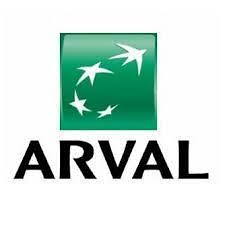Rising petrol prices could hit smaller businesses in 2017, should the cost of oil follow the trajectory being forecast by commodity strategists, warns Swindon-based Arval.
The European vehicle leasing and fleet management giant, which has its UK base at Windmill Hill, said the main factor behind retail price changes at the pumps will be the price of a barrel of crude oil. 
Following agreed cuts to production by OPEC, the cartel of oil-producing nations, this is forecast to rise this year after finishing 2016 at close to $60 a barrel. To put this into context, in January 2016, benchmark Brent crude was trading at around $30 a barrel.
Arval head of product and insight, Mike Waters, said: “There is always a degree of uncertainty surrounding price forecasts, but the direction of travel seems clear with crude already trading above $50 early into 2017.
“A doubling of the market price for crude oil over a two-year period will always be reflected in prices on UK forecourts, with current prices already around 16p per litre higher than 12 months ago. Because as much as a third of a business’s total car and van spend can go on fuel, this would be a major increase in business costs.
“Potentially, these rises can hit smaller businesses hardest because they are less likely to be actively managing their fuel spend. However, almost all of the fuel management strategies that are often used by larger fleets to minimise costs can also be adopted by smaller companies.”
The number one tool for any business, said Mike, was to adopt a formal fuel card for spending. This is a fuel payment card giving drivers an alternative to purchasing fuel for business use themselves then claiming the cost back via business expenses.
“A fuel card gives you two fundamentals – a high level of control over spending and reliable, timely data. There is really no other way to achieve this,” he said.
“Once you have a good fuel card in place, you can start to take action over day-to-day fuel purchasing and fuel use, specifying where fuel is bought, encouraging drivers to use brands like supermarkets which often charge the lowest pump prices, and identifying the drivers and vehicles that deliver MPG figures outside of acceptable parameters.”
Fuel prices were also likely to lead to more fundamental shifts, such as smaller businesses changing the type of vehicles they opt for, said Mike.
“Higher fuel bills make it even more important for businesses to select the right vehicle type for the job at hand. Fundamentally, this will mean more economical cars and vans,” he said.
“One of the interesting things about the last year or two is that, perhaps for the first time, there are genuine alternatives in vehicle technology to simply selecting petrol or diesel models, for example fully electric, or plug-in hybrid vehicles.
“It could be that, as fuel prices rise, we could see an increase in hybrid sales and, to a lesser extent, fully electric vehicles. These options allow smaller business to sidestep pump price increases in ways that previously were just not possible.”
Arval UK, part of the French banking giant BNP Paribas, funds more than 157,000 cars and vans.














